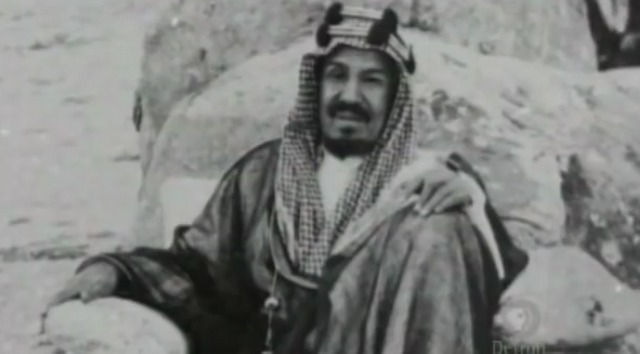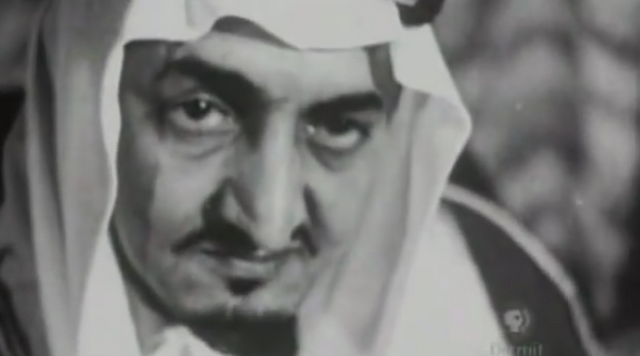Documentary Review - Frontline - House of Saud
Fascinating. Though the world is moving towards independent journalism because the main stream media is totally biased and incompetent, we've always held a special place in our heart for Frontline. The narrator is the Dick Enberg of documentaries, there is just something about an old man's voice on TV. He should go to the narrator Hall of Fame. (Note to self, if a narrator Hall of Fame does not already exist get on it. Route 66?) His name is Will Lyman and he is also the narrator of those "most interesting man in the world" beer commercials for Dos Equis.
Saudi Arabia. How much do you know about it? This almost 2 hour history from 2005 is captivating. Saudi Arabia is tribal, to this day. Patronage is offered to the prince even if only symbolically. It's growth in the 20th century was astounding. Yet forces are pulling it backwards, forces willing to use wealth from the west against the west.
In the early 1900s the Arabian peninsula was full of warring tribes and fiefdoms: nomads; sheiks; emirs. A notable family was Al Saud. King Abdul Aziz was the start of the unification of the peninsula. Abdul Aziz Ibn Saud started with 60 men in 1902. He wanted a kingdom. He started with the Iquan, or, muslim brothers, nomadic bedouins. They were good fighters of the austere wahabi sect of islam. To get these fighters on his side Abdul Aziz promised them their efforts would coincide with the spread of wahabism.
By 1926 they held Mecca and Medina. This brought prestige and money from the visitors. Empire was on their mind. When Abdul Aziz tried to restrain the fighters they rose up against him. Now he had to suppress the fighters who helped his consolidations. King Abdul Aziz appealed to the religious experts of the country, the uliman in Riyad. They scoured the koran and sided with Abdul Aziz, his fatwah was approved, his 1927 put down of the Iquan was successful. In 1932 Abdul Aziz declared himself king and named the country after himself.
To unite the Kingdom, Abdul Aziz married a daughter of every tribal chieftan in his realm producing 45 legitimate sons. (Note to self, if reincarnation is a thing come back as King Abdul Aziz Ibn Saud). Every Saudi king since has been a son of Abdul Aziz.
In 1931 oil was found. An American explorer was really looking for water, but found oil. They had to invite foreign companies to extract it, though. Though some protested it was against islam they found even the prophet used Christians and jews to his benefit, so the outsiders were allowed. The US won rights to the biggest oil fields in the world with $170,000 in gold. Aramco (Arabian American Oil Company) was created.
Early on promises were made by the Americans. Both Arabs and jews would be consulted on matters involving israel before decisions would be made. In 1947 the UN met to vote on the partition of Palestine and israel. Prince Feisal, Abdul Aziz' second son, represented Saudia Arabia and was expecting a no vote from the US. He was assured as such by General Marshal. The US voted yes.
Feisal took it as a personal insult. Saudi Arabia has never recognized israel and is technically officially still at war with it. The king was disappointed but still knew he needed American "protection" from neighboring "threats".
Eventually Prince Saud was named the aging Abdul Aziz' replacement. Prince Saud was considered soft. He loved to visit the isolated compounds where American oil workers lived and gained an appreciation for booze and other things.
Things got too loose under King Saud so the Uliman approved his replacement with Feisal. The aging exiled monarch spent the rest of his days in Athens, Greece.
An interesting quote from a former minister of petroleum, "Between 1960 and 1970... the price of oil did not go up one single cent. The price of one barrel of equivalent pepsi cola was more expensive than an oil barrel."
The Saudis wanted more control over Aramco and the jewish problem. When israel continued to expand Feisal had enough and shut down the spigot. In response the US sent over Kissinger! The talks turned threatening but Feisal was not impressed.
Feisal was assassinated. King halid replaced him. Fahad eventually replaced him.
In the 1970s Saudi Arabia was booming. The native population had it good. In 2005 the population was ~16m with an imported workforce of around 6-7m. The Bin Laden family did quite well during these times and amassed a fortune. Corruption was rampant and included US made weapons. There were also real estate bubbles.
What Saudis spent and did in European casinos was in contrast to the religious leaders in the country. They became concerned they might be overthrown like the shah in Iran.
Mecca was taken over by radicals. Interestingly the royals got approval from the imulam to take it back. The militants lost, 120 died. Their leader leader was a direct descendant of the Iquan. The extremists were suppressed. But the nation as a whole was affected and the royals virtue signaled towards the conservative sentiment, wahabism grew. Funds were sent outside the country including Bosnia, in Europe. "Holy War" against "infidels" was encouraged.
America had insinuated itself militarily in Saudi Arabia after the Iraqi invasion of Kuwait. Their presence festered and several escalating attacks occurred against Americans in Saudi Arabia. When dubya was vocally opposed to Araffat and pro Sharon Saudi Arabia objected. During negotiations the 9-11 attack on NY occurred.
Most of the prisoners in Guantanamo Bay are Saudi fighters from Afghanistan.
It is a very strange relationship between the US and SA, and between the radicals within SA and SA itself.
Make no mistake, these people wipe their asses with Benjamins.
We give this 4.6 out of 5 Farts. Very well done.
Abdul Aziz
Feisal

